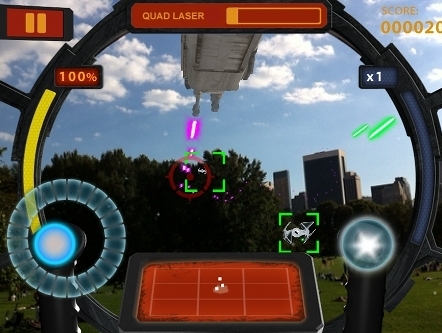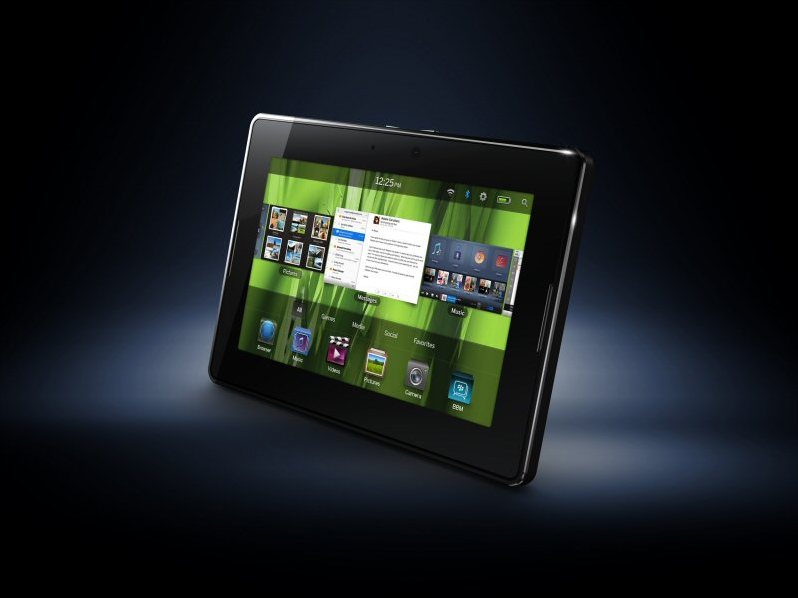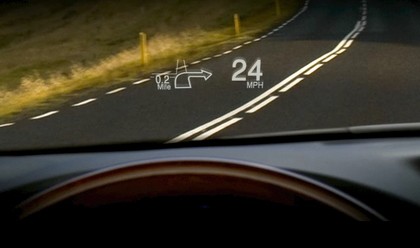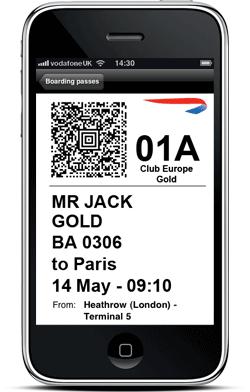10 tech trends to watch in 2011
And we don't mean Duke Nukem Forever

It's not here yet, but 2011 is already shaping up to be an interesting year for tech.
The long-awaited Chrome OS will say hello and many of the tablets we were promised in 2010 will actually turn up; smartphones will get smarter and Facebook and Google will no doubt do something sinister or annoying.
But what are the key trends to watch in 2011? The following 10 trends, we think, will be a really big deal.
1. 3D
The jury's still out on whether 3D is going to be a lasting part of our lives, but it's going to be coming at us like props in a gimmicky 3D movie throughout 2011. Sky's pushing its pricey 3D into our homes, 3D Blu-Ray players will fall in price as the number of 3D titles explodes, Nintendo's 3DS will be in the shops and stacks of movies will be released in 3D for no good reason.
HTC reckons it has the first 3D mobile phone and even Apple's getting in on the act: it's patented an auto-stereoscopic display that could deliver glasses-free 3D on devices such as iPods, iPhones and iPads.
2. Android Tablets, Apple rivals and iPad 2
Sign up for breaking news, reviews, opinion, top tech deals, and more.
2011 is when we'll see battles between big-name tablets such as the BlackBerry PlayBook and Apple's iPad 2. The big news, though, will be the rise of Android tablets. The forthcoming Android 2.3 and Android 3.0 releases are significantly more tablet-friendly than Froyo, and Intel's Tablet-focused Oak Trail processors will go into full production early next year.

We expect them to spark an explosion in Google-powered tablet PCs - ones that actually ship this time, unlike the many tablets firms showed off but didn't ship this year. Mark our words: 2011 is going to be tablet-tastic.
3. Cloud storage and streaming
We'll find out whether Google's cloud-based Chrome OS is a credible Windows or Mac alternative when it ships early next year, but even if it's a dud the cloud will become an increasingly important part of our everyday activities.
That's partly because we're doing more of our computing on the move, and partly because even at home we're jumping from device to device: smartphone to tablet to console to desktop to laptop… you get the idea. Phones and tablets don't have the storage capacity for all our stuff, so it makes sense for them to access cloud-based storage instead.
There's another part to this: streaming. Our networks are fast enough and compression technology good enough for on-demand music and movies, so for example Netflix in the US is planning to a launch a streaming-only video service while the UK has long embraced streaming in the form of iPlayer.
Since Apple bought streaming music service LaLa.com earlier this year, a streaming version of iTunes looks increasingly likely too.
4. Location-based services
In 2010 location-based services were in their infancy, but in 2011 they're going to get serious. Imagine Google Maps chucking discounts at you when you plan a route or pass a participating retailer, and we'd expect Facebook to really start pushing its new Deals service, which combines the FourSquare-a-like Places with a Groupon-esque voucher scheme.
Location isn't just about bugging you to buy things, though. Nokia Situations promises to combine location awareness with a few rules so your phone adjusts itself to where you are and what you're doing, so for example it might turn the ringer off if you're in the park with your kids. Locale does much the same thing on Android devices.
5. Augmented Reality
Augmented Reality will continue to move from gimmick to everyday technology in 2011, whether it's car firms projecting data onto windscreens, more refined versions of apps such as Yell.com's augmented reality directory or TIE fighters attacking New York.
The latest generation of Google Earth shows just how blurry the line between the real and virtual worlds is becoming.

HEAD UP: Augmented reality isn't just a phone thing. Cars' head-up displays use augmented reality too
6. Stunning Tablet screens
We've been promised OLED (Organic Light Emitting Diode) screens in tablets all year, but they've remained mobile-only for one simple reason: huge demand for mobile phone-sized OLEDs. Bigger screens should turn up in 2011's tablets, offering more vibrant displays, better battery life and thinner form factors. Apple, meanwhile, is widely expected to bring its Retina Display to the iPad.
7. Mobile capacity problems
In 2011, all our smartphones, streaming apps and 3G-toting Tablets will connect effortlessly to mobile networks that deliver super-fast, super-smooth, high-speed internet access.
Only kidding! It's going to suck!
It looks like we'll have a choice between costly access or congested access. As John Levett of Jupiter Research explains: "2010 was the year in which the surge in mobile data traffic, driven by the consumer smartphone boom, began to place the 3G networks under severe strain. A number of network operators have responded by introducing tiered data pricing - a trend which will undoubtedly increase - but as smartphone adoption continues apace, network capacity will be sorely tested in 2011."
8. Mobile tickets and payments
Why carry lots of paper around with you when your phone can be everything from a Tesco Clubcard to an airline boarding pass? Next up: phones that can be Oyster Cards or even credit cards.

ALL IN ONE: Why stuff your wallet full of stuff when your phone can be a boarding pass, a train ticket or a credit card?
9. E-Ink
If Amazon doesn't sell an enormous number of e-ink devices this Christmas, we'll eat a Kindle - but the iPod of books isn't the only place you'll see electronic ink in 2011. HTC is experimenting with a whole mix of display technologies including E-ink for its devices, while the first colour E-ink device went on sale in China last month.
Combine colour e-ink with Sony's touch-controlled e-readers and you've got something very exciting indeed.
10. Apps, not applications
By the end of 2011, it'll feel like the only firm who doesn't have an app store is Dyno-Rod. In addition to the various mobile device app stores, Apple is preparing a Mac one: if it takes off, which we think it will, then an app store in Windows 8 is a given.
What's interesting about apps is that they represent a different way of acquiring software: instead of buying an expensive enormo-suite every few years, the App Store model is more about impulse buying and fragmentation, where you end up buying lots of ultra-cheap apps that do one or two things particularly well.
------------------------------------------------------------------------------------------------------

Contributor
Writer, broadcaster, musician and kitchen gadget obsessive Carrie Marshall has been writing about tech since 1998, contributing sage advice and odd opinions to all kinds of magazines and websites as well as writing more than twenty books. Her latest, a love letter to music titled Small Town Joy, is on sale now. She is the singer in spectacularly obscure Glaswegian rock band Unquiet Mind.